Central African Republic
Counting is underway in the Central African Republic following Sunday's vote on a new constitution.
The proposed changes by President Faustin Archange Touadéra would extend presidential terms from five to seven years and remove the previous two-term limit, which would enable Touadéra to run again in 2025.
The new constitution would replace the one adopted at Touadéra's inauguration in 2016.
Preliminary results are expected to be announced in just over a week and finalised by the constitutional court in late August.
Low turnout
Around 1.9 million people were eligible to cast their ballots at polls on Sunday but reports suggest voter turnout was low.
Opinion polls suggest the result will be in favour of the new constitution.
Prior to Sunday's vote, the opposition accused the ruling party of rushing through the draft and making it publicly available too late for the public to make informed decisions. It was made public only twenty days before the vote.
The opposition believed the vote was also rigged in favour of the draft.
Entrenched power
The proposed changes would also lift requirements that executive decisions be debated by the legislature and would prevent dual national Central Africans from running for the top office.
Analysts say that, if the new constitution is passed, it could entrench the ruling party's power indefinitely.
In a recent report, Human Rights Watch said the referendum "could further close civic space in the Central African Republic and risks reversing democratic gains made since 2015".
Continued intercommunal fighting
With a population of 5.5 million people, the Central African Republic is a mineral-rich but impoverished nation that has faced intercommunal fighting since 2013, when predominantly Muslim Seleka rebels seized power and forced then-President Francois Bozize from office.
Mostly Christian militias later fought back, also targeting civilians in the streets.
The United Nations, which has a peacekeeping mission in the country, estimates the fighting has killed thousands and displaced over a million people, one fifth of the country’s population.
When Touadera won re-election in 2020, barely a third of Central Africans made it to the polls, largely due to threats of violence by rebel groups.
Touadera’s government has relied on support from U.N. peacekeepers, soldiers from neighbouring Rwanda and Russian mercenaries from the Wagner Group to keep rebels out of the capital Bangui.




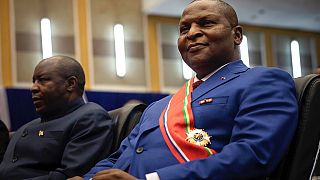
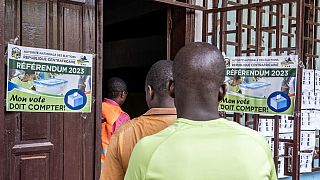
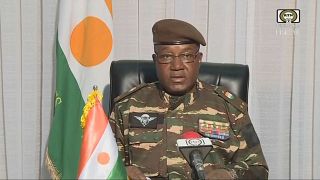
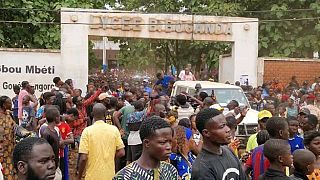
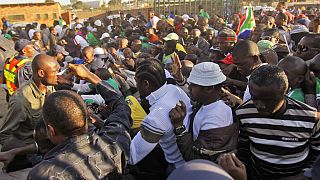
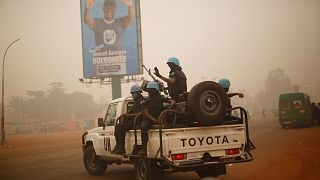



01:19
Italy's referendum on citizenship and labour laws fails due to low turnout
Go to video
African governments and armed groups: Paths to peace amid turmoil
Go to video
Somali president focuses on reforms, not re-election for now
01:02
Kabila plans return to DR Congo amid growing crisis
02:15
Central African opposition leads mass protest against Touadéra’s third-term bid
Go to video
Guinea's Junta sets referendum for September sparking fresh hopes for democracy